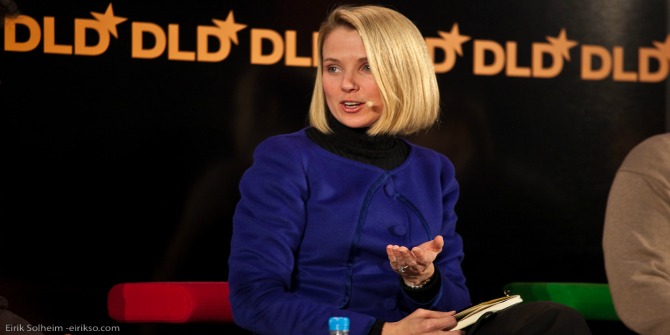The type of leader who has succeeded in the past is probably not going to cut it in the new economy. The new times demand a high level of innovation that cannot be achieved by alpha leaders. Grace Lordan writes that successful leadership will require a lot of courage to do things differently.
In 2022 I began to pay attention to the character traits I most admire in leaders around the world. One theme emerged clearly. The type of leader who has succeeded in the past is probably not going to cut it in the new economy. The leader who will thrive is courageous. However, their courage manifests itself in very different ways as compared to leaders of the past.
Right now, there is a growing demand for a level of innovation in the economy that cannot be achieved by ‘alpha’ leaders who manage their teams in a command-and-control style manner. Nor can it be achieved by high-ego leaders that surround themselves with people ‘like them’ so they can feel protected and engage regularly in confirmation bias. Nor can it be achieved by leaders who simply want to manage people, without actually doing the graft of generating income for the core business.
The leaders who will thrive are redefining what courage means for leadership.
When these leaders bring their team together for meetings, they are careful to speak far less than others. These leaders recognise that they have been given a gift of time with colleagues with perspectives different to theirs. They recognise their role is to actively listen, and to use this information to advance the team’s thinking. These leaders are also careful to make sure that a small number of dominant colleagues do not succeed in being the only ones getting their attention. Rather, they enable all colleagues to give their perspective. The same leaders will also make clear to their team that there is no need to weigh in on every single issue up for discussion. Rather they want team members to contribute unique perspectives and to challenge the status quo. Taking this approach allows these courageous leaders to create a dynamic where meetings are productive, inclusive, and efficient. The courage in this approach is bellied in their willingness to allow colleagues to challenge the status quo, including any of their own ideas. Their courage is also exhibited in their willingness to do things differently based on the feedback of others, if this is a route to better outcomes for their customers, stakeholders and/or shareholders.
Leaders who will thrive are also courageous in recognising what their priorities are and delegating all other necessary tasks. They do not need to be in every meeting or cc’ed in every email. They are also adept at eliminating unnecessary tasks and red tape. Doing so allows them to focus completely on the things that are actually important. It also gives autonomy to their team members to take a leadership role in their tasks. Giving autonomy in this way has been linked to productivity and job satisfaction improvements. In large organisations it is a good idea to couple this tactic with a high level of transparency. That is, provide a system whereby all other colleagues can find out the status of tasks with which they are not actively involved. This functions as a method to build trust, which has knock-on effects for psychological safety at the organisational level. Within smaller teams, updates can be done verbally within team meetings. This approach eliminates the bloat of unnecessary reporting and allows for higher levels of team cohesion.
Leaders who will thrive are also courageous in risk taking. They are confident in taking risks recognising it is the only way that true progress can be made. They are not, however, over-confident in forecasting the predicted outcome. Rather, they are honest with their team about calculating future payoffs, recognising clearly what they do not know.
When taking a risk, courageous leaders gather their team’s perspective on the associated costs, benefits, and risks and reflect this in their decision-making. They are always willing to change their mind on their starting viewpoint. When there are disagreements within the team on the direction of travel, these disagreements are recorded by the leader for future reference. Courageous leaders never force consensus-based decision-making. Rather, they allow a disagree-and-commit declaration by their team’s members (as made popular by Amazon). Courageous leaders also look back over the data they recorded on who disagreed and why. This allows for learning on the perspectives that may have been overlooked to enable better decision-making the next time around. Courageous leaders are open with their team regarding blind spots they found in these post-mortems.
‘Courage and Leadership’ is written with the hope that every single leader can take more courage in how they run their meetings, delegate priorities and tasks and take risks in 2023.
Taking such courage holds one key to enabling diverse teams and gaining in terms of productivity!

♣♣♣
Notes:
- This blog post represents the views of its author(s), not the position of LSE Business Review or the London School of Economics.
- Featured image by Cristian Escobar on Unsplash
- When you leave a comment, you’re agreeing to our Comment Policy.






Dear Ms. Grace Lordan,
I am well-delighted by the article you have written about Courage and Leadership 2023. I concur with your view that “Leaders who will thrive are confident in taking risks recognizing it is the only way that true progress can be made. They are not, however, over-confident in forecasting the predicted outcome. Rather, they are honest with their team about calculating future payoffs, recognizing clearly what they do not know.” Indeed, being truthful and courageous are the two prominent qualities in leadership.
I am looking forward to read your other articles about leadership. I read your short biography. It says that you are an Associate Professor in Department of Psychological and Behavioral Sciences at LSE. Well, I, myself am an undergraduate student from Social Behavioral Department at Tilburg University in the Netherlands. Thus, I perceive that we share common ground in knowledge and research.
Thank you for your time reading my comment. I am looking forward to your reply.
Warm regards,
Keziha Napitupulu
Every leader must read this article